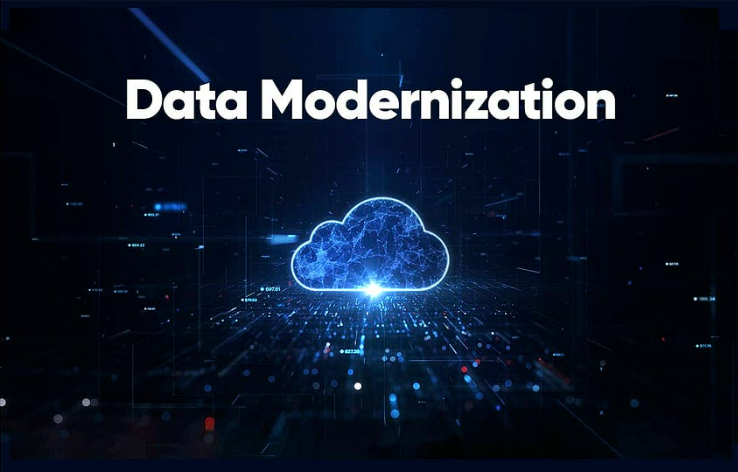What Is Data Modernization? Definition, Benefits & Importance

Understanding Data Modernization
Data modernization refers to the process of transforming and updating an organization’s data infrastructure to leverage modern technologies and methodologies. This typically involves migrating from legacy systems to more advanced and scalable cloud-based platforms, integrating big data solutions, and utilizing data analytics and machine learning tools to extract actionable insights. The goal is to make data more accessible, accurate, and useful for decision-making processes.
The Benefits of Data Modernization
- Enhanced Data Accessibility and Sharing
- Scalability and Flexibility: Modern data platforms offer scalable solutions that can grow with your business needs, allowing you to handle increasing volumes of data efficiently.
- Improved Collaboration: By centralizing data in the cloud, teams across different departments can access and share information more easily, promoting better collaboration and innovation.
2. Improved Data Quality and Accuracy
- Data Integration: Modernization enables the integration of data from various sources, ensuring a single source of truth and reducing discrepancies.
- Advanced Analytics: Utilizing advanced analytics tools helps in maintaining high data quality and accuracy, enabling more precise and reliable insights.
3. Cost Efficiency
- Reduced Operational Costs: Migrating to cloud-based solutions often reduces the costs associated with maintaining and upgrading on-premises infrastructure.
- Efficient Resource Utilization: Pay-as-you-go models in cloud computing ensure that you only pay for the resources you use, optimizing costs.
4. Enhanced Security and Compliance
- Advanced Security Measures: Modern data platforms come with robust security features, including encryption, access controls, and regular security updates.
- Regulatory Compliance: Keeping data in modern systems helps organizations stay compliant with industry regulations and standards, reducing the risk of legal issues.
5. Accelerated Innovation
- Leveraging AI and Machine Learning: Data modernization allows organizations to implement AI and machine learning models, driving innovation and gaining a competitive edge.
- Faster Decision-Making: With real-time data processing and analytics, businesses can make quicker and more informed decisions.
The Importance of Data Modernization
- Staying Competitive
- Adaptability: In a rapidly evolving technological landscape, data modernization ensures that organizations remain agile and adaptable to changes.
- Competitive Advantage: Access to modern tools and technologies gives businesses a competitive edge by enabling them to innovate and respond to market changes swiftly.
2. Meeting Customer Expectations
- Personalized Experiences: Modern data solutions allow for better analysis of customer behavior and preferences, enabling personalized marketing and improved customer experiences.
- Improved Services: Faster access to accurate data helps in enhancing the overall quality of services offered to customers.
3. Driving Business Growth
- Data-Driven Insights: Modern data infrastructures provide the foundation for advanced analytics, leading to insights that drive strategic business decisions and growth.
- Efficiency and Productivity: Automation and streamlined data processes reduce manual workloads, increasing overall efficiency and productivity.
Conclusion
Data modernization is a critical step for organizations aiming to harness the full potential of their data. By transitioning to modern data platforms and tools, businesses can enhance data accessibility, improve data quality, reduce costs, and stay competitive in an increasingly data-driven world. Embracing data modernization not only helps in meeting current demands but also paves the way for future innovation and growth.


Comments
Post a Comment